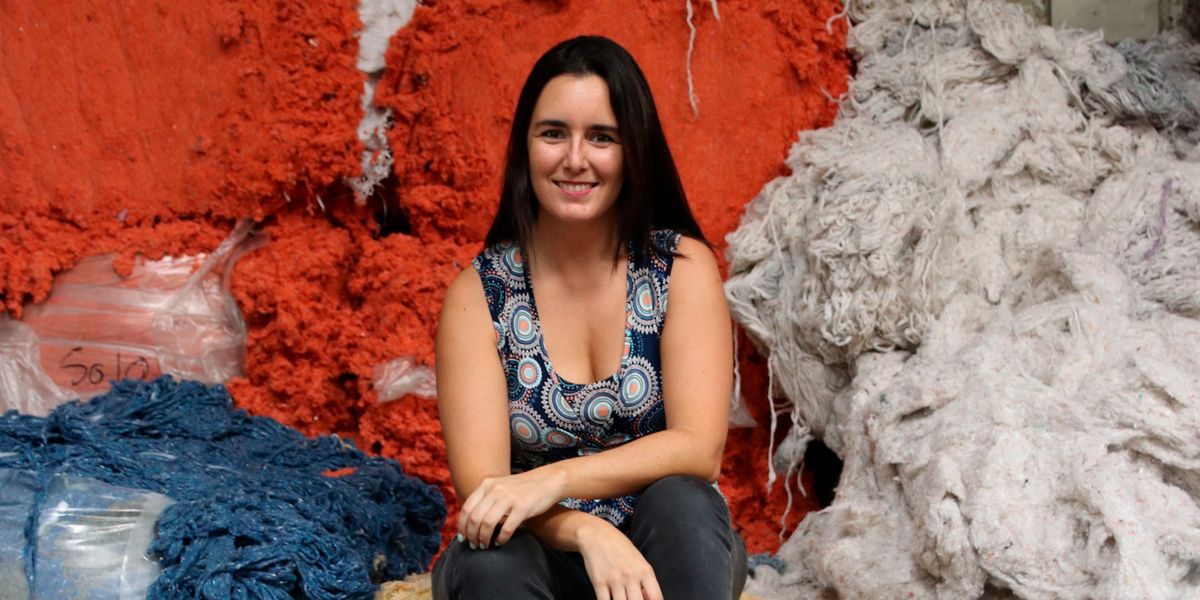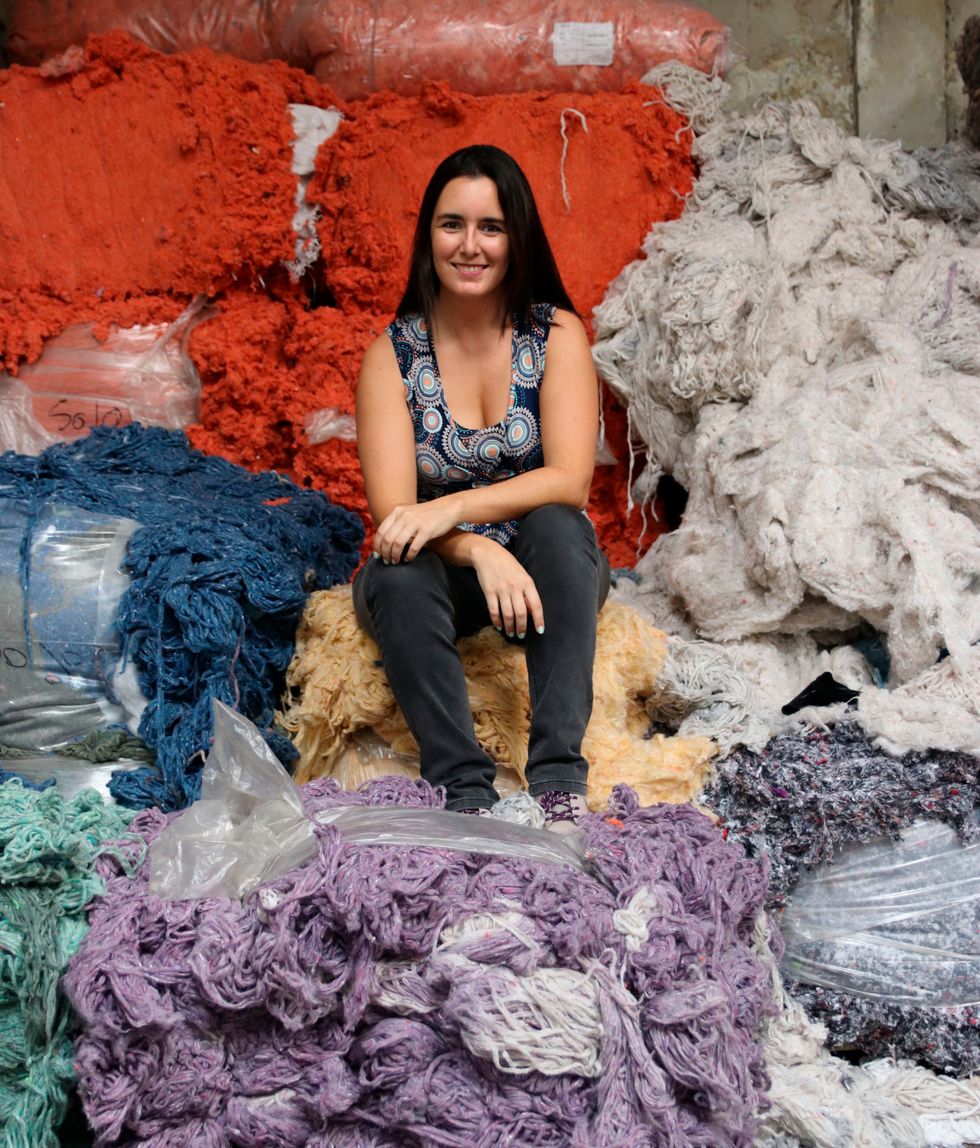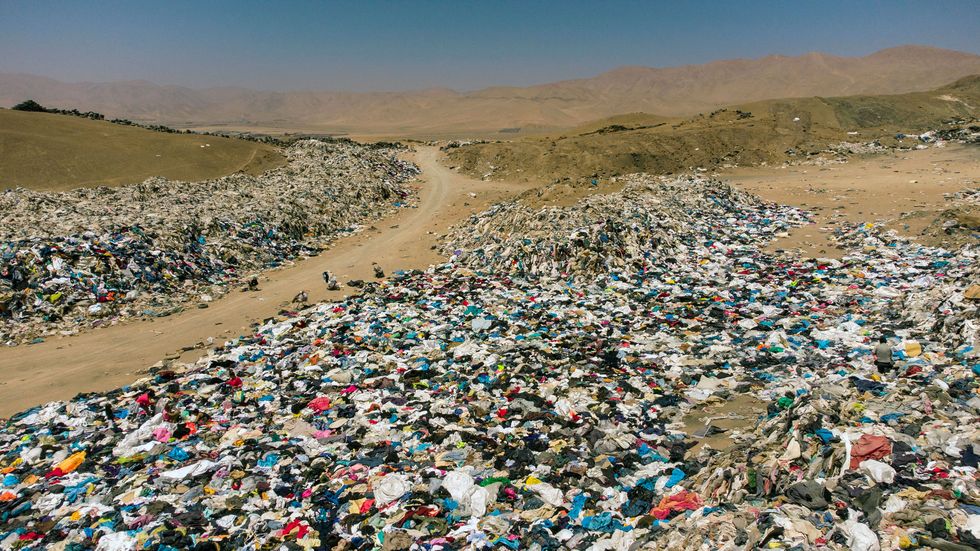In northern Chile, roughly 59,000 tons of secondhand clothing arrives in ships from the United States, Europe, and Asia every year. Some is resold, but what is unsalvageable, roughly 39,000 tons, ends up in a trash dump in the Atacama desert, a fashion graveyard in the driest desert in the world.
In 2018, Rosario Hevia left a cushy role in financial planning to take action. Today, she is the founder of two game-changing Santiago-based companies. First came Travieso, two stand-alone stores and a website where she collects donated secondhand children’s clothing and resells, converts, recycles, or donates it to children in need. “I realized that my kids were doing fine,” she says. “I just saw them and imagined kids without clothing, especially in winter.”
At one point, Hevia received about 970 excess pounds of kids’ clothing per month. She knew it couldn’t go in the dumpster, but “I had no idea what to do with the clothing in bad condition,” she says. With four partners, she launched Ecocitex, which turns used or damaged clothing and discarded textiles into fibers like yarn and cotton—and, in turn, backpacks, blankets, pillows, and other objects.
After Ecocitex was named a Responsible Project of the Year honoree at the Latin American Fashion Awards this past November, Hevia’s hope is to replicate her store model throughout Chile. “Women are worried about the planet we’re leaving for our kids,” she says. “If you would tell me, ‘Rosario, work on this other thing and you’ll earn double what you make now, but it’s less meaningful,’ I’ll say ‘No, thank you.’”
On reducing her carbon footprint
“I’m really radical. My way of thinking is to purchase new only what you actually cannot find used. I only buy underwear and shoes new. The clothing is there, let’s stop creating. Let’s stop polluting the world. Let’s stop with this overconsumption unless it’s totally necessary.”
On fast fashion
“Sometimes I feel like I’m the only one that actually cares. Fast fashion is so bad for the planet. You see a brand is burning surplus clothing and is so bad, but then people buy from it and it’s like, Why should I keep on trying to solve a problem that nobody really cares about?”
On her motivation to do good
“When I was 17, I entered a depression for two to three years. It got to a point that I got picked up from the university campus and taken to the hospital. So I thought, You think the world would be a better place without you in it? Let’s demonstrate the opposite. Demonstrate to yourself that the world is a better place because you’re in it. I started doing social work, going to the south of Chile to construct housing, doing programs with kids. Little by little, I started feeling better and started doing more, and more, and more. The only way that I can work and be a mother and be okay with myself is that my work has meaning. I want to help people.”
On her inspiration
“My kids [Emelia, 8, and Matías, 6]. When Emilia was born, I was working in financial planning at an airline. I thought to myself, I’m leaving you to work in the airline industry for what? What am I doing? What is more important than me raising you right? Then, when I started doing Travieso, it made sense: I am leaving you because I want all the kids to be able to be dressed without being cold in winter.
“They will come up to bring me a coffee when I’m working and say, ‘Mom, you can do it.’ They love what I’m doing and they go to my stores with me. When we see someone on the sidewalk sleeping in the street, we’re the type of family that will go and buy food and leave the food to them, or pick them up and bring them home, which is not really recommended, but I’ve done it. [Laughs.] My kids go, ‘Mommy, we’re changing the world.’ They’re aware.”
A version of this article appears in the April 2024 issue of ELLE.



